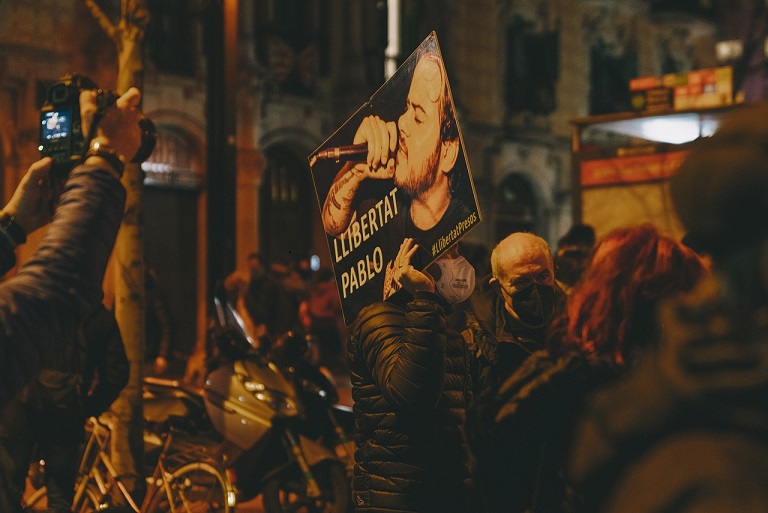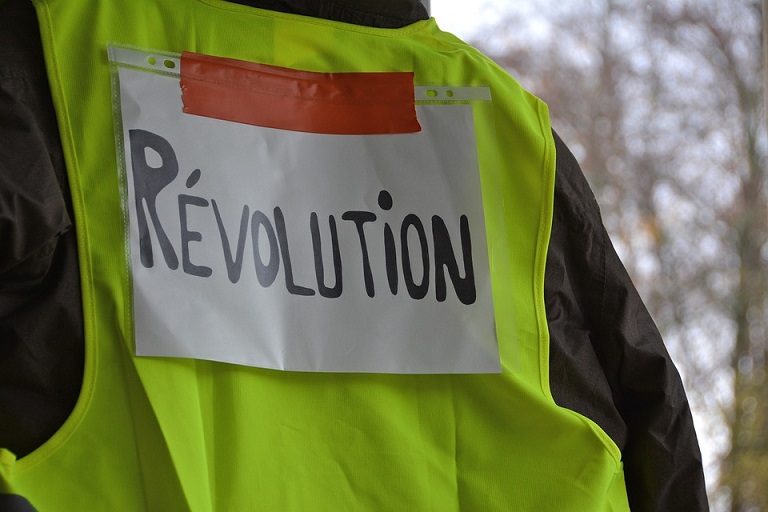The need for a theoretical basis to guide its programmes would probably be the greatest challenge for the Left, as it is precisely the one that allows it to establish strategic and immediate tasks.
 Juan Diego García
Juan Diego García
Without a long-term reference point, any left-wing political force runs the risk of limiting itself to what is offered by opportunity (classic “opportunism”), leaving the ultimate goal as a mere reference to appease consciences.
Experience shows that the most sensible thing to do is to ensure that the achievement of immediate objectives (generally the so-called reforms) serves to move towards strategic objectives (the revolution). It would then be a matter of achieving the right relationship between long-term tasks (strategy, the search for radical change, i.e. going to the root of the problem) and the imperative need to propose immediate and realistic objectives.
The experience of the large contemporary revolutions indicates that achieving this harmonious combination of the immediate and the strategic is difficult, but it seems to be the most appropriate way for the agents of change (masses and leaders) to reach the necessary levels of political awareness and organisation.
After the resounding defeat of the Soviet model and the no less lamentable decline of European social democracy, the left should take on the indispensable task of making a critical analysis of both experiences, since it is to them that we owe the greatest advances of the popular movement and in particular of the workers’ movement.
The Soviet Union, as well as the People’s Republic of China, succeeded in bringing these two great countries out of material backwardness and misery. The USSR was undoubtedly the decisive factor in the defeat of fascism, thus giving humanity an important break in its struggle against the most barbarous forms of the capitalist system.
 Meanwhile, social democracy played a decisive role in the establishment of the so-called welfare state in Europe, which gave the working class and the popular sectors the highest standard of living they had ever achieved.
Meanwhile, social democracy played a decisive role in the establishment of the so-called welfare state in Europe, which gave the working class and the popular sectors the highest standard of living they had ever achieved.
But the so-called “really existing socialism”, which achieved indisputable physical goals, did not produce significant advances in the in-depth renovation of the system of political participation. Nor did it have any remarkable achievements in the sphere of culture, of basic values, those aspects that almost automatically determine human behaviour. Surely the emphasis on the material aspects of the Soviet model and the little or no concern for developing a new culture led to the emergence and development of a new bourgeoisie (public sector entrepreneurship) and the preservation of the cultural patterns of the old order.
It will be the bureaucracy and the administrators of state enterprises who in different ways end up becoming the new capitalists.
 The lack of a real cultural revolution would explain the presence in the former socialist camp of religiosity and nationalism which were supposed to have been overcome by rational thinking and internationalism.
The lack of a real cultural revolution would explain the presence in the former socialist camp of religiosity and nationalism which were supposed to have been overcome by rational thinking and internationalism.
The lesson seems obvious: in economic terms, it is not a question of imitating or surpassing capitalism in the production of wealth, but of seeking an economy that ensures the satisfaction of basic needs and contributes to resolving the contradictions between humanity and nature. At present, this objective involves democratically deciding what to produce, what not to produce and to what extent, something that clashes with the prevailing consumerist model and which will cause at least part of the population to oppose it.
This has always been the case anyway: in major socio-cultural changes, a part of the population leaves and stops supporting the change. The challenge is to ensure that the percentage that opposes the change is as small as possible.
 The reformism that underpins the so-called welfare state in Europe is the result of a tactical-temporary alliance between big capital and labour managed by social democrats and communists in the name of the workers’ and popular movement.
The reformism that underpins the so-called welfare state in Europe is the result of a tactical-temporary alliance between big capital and labour managed by social democrats and communists in the name of the workers’ and popular movement.
Social democracy initially sought the reform of capitalism as an advance to socialism but ended up settling for “humanised” capitalism.
It was supported above all by the higher-income working class and many middle strata, which modern capitalism has greatly enlarged. The communists, although they maintained the socialist goal, in practice it was nothing more than words, because in practice they did not transcend social democracy.
The former ended up renouncing their old reformist banners and unashamedly embraced the neo-liberal model, while the communists (with a few exceptions) promoted the so-called “Eurocommunism”, which in many ways does the same thing: it gives up on its revolutionary slogans.
 As these are the two main currents of the socialist movement, because of their dimensions and achievements, it is indispensable that the left – especially the left which aims to overcome capitalism and begin the construction of a radically new social order – makes a critical analysis of these two experiences. In this way it can look for the reasons for their exhaustion and defeat and then outline the tasks to work on the formulation of a new model.
As these are the two main currents of the socialist movement, because of their dimensions and achievements, it is indispensable that the left – especially the left which aims to overcome capitalism and begin the construction of a radically new social order – makes a critical analysis of these two experiences. In this way it can look for the reasons for their exhaustion and defeat and then outline the tasks to work on the formulation of a new model.
It must begin with an economic model that proposes realistic ways of “expropriating the expropriators” (the traditional slogan of the workers’ movement and an objective that cannot be renounced if one wants to get to the heart of the problem) and that seeks to build an essentially different political order in which direct democracy is linked to the indispensable and necessary forms of delegated power.
But, above all, it must, as far as possible, lay the foundations of a new culture and social order which will make it possible that “In place of the old bourgeois society, with its classes and class antagonisms, there will arise an association in which the free development of each will be the condition for the free development of all” (another classic slogan of the proletariat).
(Translated by Rene Phelvin) – Photos: Pixabay












.jpg)












